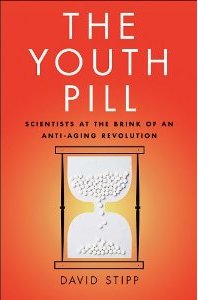November 23rd, 2010 by Jeffrey Benabio, M.D. in Better Health Network, Health Tips
1 Comment »


Trying to keep up with what’s hot in skincare is like trying to keep up with the Kardashians. It’s impossible (not that I’ve tried with the Kardashians, that is.)
Then how are you to know what are the latest and greatest ingredients? Well, you could read The Derm Blog (when I get around to posting on it), or you could just listen to your grandmother.
Some of the newest discoveries in skin care aren’t new at all: Olive oil may be seem hot now, but countless Mediterranean grandmothers, including mine, have sworn by its skin-care benefits for centuries (millenia?) Were they right?
Olive oil contains caffeic acid, oleic acid, and oleuropein — all of which are potent antioxidants. Unlike berries or teas, these antioxidants are already in oil, allowing them to be directly applied to the skin. Topically applied olive oil helps dry skin, rosacea, psoriasis, seborrhea, burns, atopic dermatitis, contact dermatitis, diaper dermatitis, hand dermatitis, and eczema. Read more »
*This blog post was originally published at The Dermatology Blog*
August 24th, 2010 by Medgadget in Better Health Network, News, Research
No Comments »

 Antioxidants are important substances that prevent free radicals from damaging cells, and potatoes contain substantial amounts of them.
Antioxidants are important substances that prevent free radicals from damaging cells, and potatoes contain substantial amounts of them.
However, researchers from Obihiro University in Japan thought that more would be better and have developed some innovative methods of boosting the potato’s antioxidant content. By immersing the potatoes in water or salt and subsequently applying ultrasound or electricity for 5 to 30 minutes, they increased the amounts of antioxidants by as much as 50 percent. Read more »
*This blog post was originally published at Medgadget*
July 17th, 2010 by Harriet Hall, M.D. in Better Health Network, Book Reviews, News, Opinion, Research
No Comments »

 Wouldn’t it be great if we could find a way to prolong our lives and to keep us healthy right up to the end? Ponce de León never found that Fountain of Youth, but science is still looking. What are the chances science will succeed? How’s it doing so far?
Wouldn’t it be great if we could find a way to prolong our lives and to keep us healthy right up to the end? Ponce de León never found that Fountain of Youth, but science is still looking. What are the chances science will succeed? How’s it doing so far?
In his new book The Youth Pill: Scientists at the Brink of an Anti-Aging Revolution, David Stipp tries to answer those questions. From the title of the book, I expected hype about resveratrol or some other miracle pill, but instead it is a nuanced, levelheaded, entertaining, informative account of the history and current state of longevity research. It makes that research come alive by telling stories about the people involved, the failures and setbacks, and the agonizingly slow process of teasing out the truth with a series of experiments that often seem to contradict each other.
Anti-aging can mean several things. Extending the average lifespan is not the same as extending the maximum lifespan. Extending lifespan is not the same as preventing the degenerative changes characteristic of aging. Read more »
*This blog post was originally published at Science-Based Medicine*





 Antioxidants are important substances that prevent free radicals from damaging cells, and potatoes contain substantial amounts of them.
Antioxidants are important substances that prevent free radicals from damaging cells, and potatoes contain substantial amounts of them.
 Wouldn’t it be great if we could find a way to prolong our lives and to keep us healthy right up to the end? Ponce de León never found that Fountain of Youth, but science is still looking. What are the chances science will succeed? How’s it doing so far?
Wouldn’t it be great if we could find a way to prolong our lives and to keep us healthy right up to the end? Ponce de León never found that Fountain of Youth, but science is still looking. What are the chances science will succeed? How’s it doing so far?







